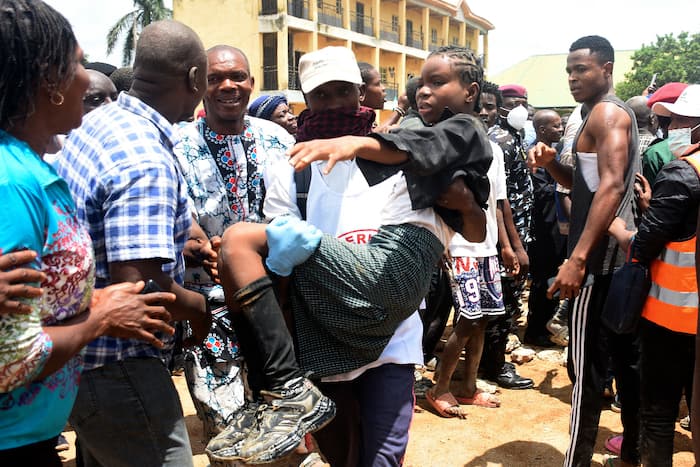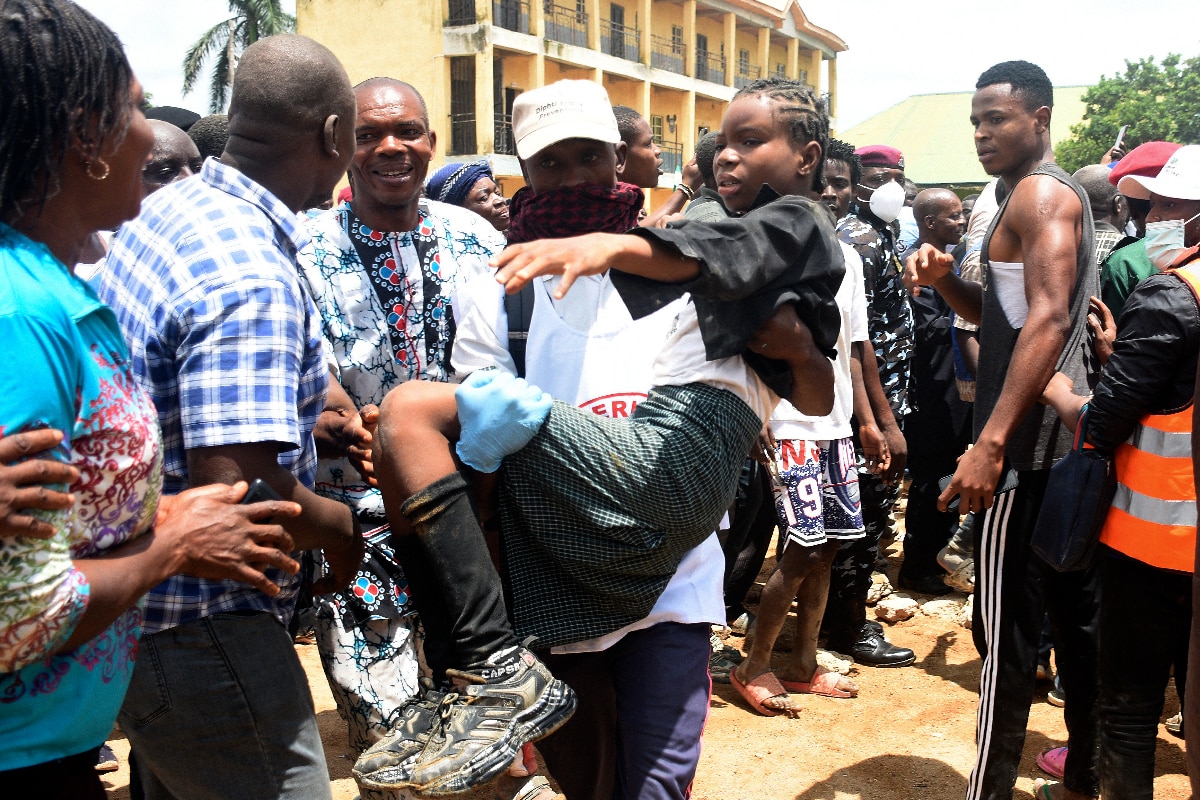Dozens of villagers gathered near the school, some weeping and others offering to help, as excavators combed through the debris.

ABUJA, Nigeria: A tragic incident occurred on Friday morning in north-central Nigeria when a two-story school building collapsed during classes, trapping around 120 students and teachers. The collapse has led to a frantic search for survivors amidst the rubble. According to a local television station, 12 deaths have been reported so far.
Authorities have not yet confirmed the exact number of fatalities at Saints Academy College in Plateau state’s Busa Buji community. However, Channels Television reported that 26 people are currently receiving treatment, based on a witness account from a nearby hospital. Rescue operations are ongoing as authorities and volunteers work to find and assist those trapped.
Nigeria’s National Emergency Management Agency said rescue and health workers as well as security forces have been deployed at the scene. It said that “several students” had been killed.
“Approximately 120 people were trapped, with many evacuated,” Plateau Commissioner for Information Musa Ashoms said in a statement. “To ensure prompt medical attention, the government has instructed hospitals to prioritize treatment without documentation or payment.”
The state government attributed the tragedy to the school’s “weak structure and location near a riverbank,” urging other schools with similar issues to close down.
Dozens of villagers gathered near the school, some weeping and others offering to help, as excavators combed through the debris. One woman was seen wailing and attempting to approach the rubble as others held her back.
Building collapses have indeed become a troubling issue in Nigeria, with over a dozen incidents reported in the past two years. Recent examples include the collapse of a school building in Plateau state, which tragically resulted in the deaths of several students. Authorities often attribute these disasters to the lack of enforcement of building safety regulations and poor maintenance practices. This ongoing problem highlights the urgent need for stricter regulations and better oversight to prevent further tragedies.
(With AP inputs)

